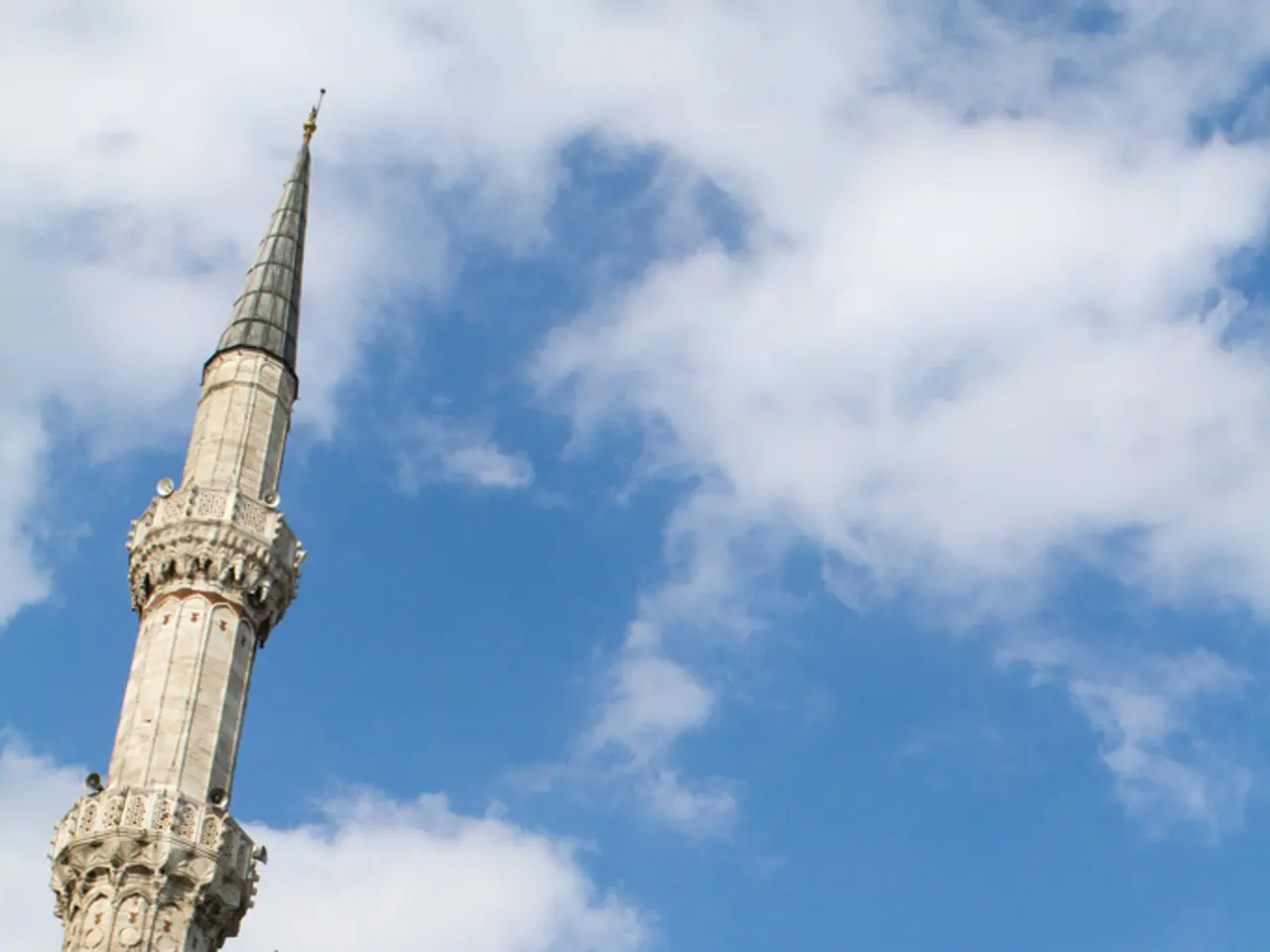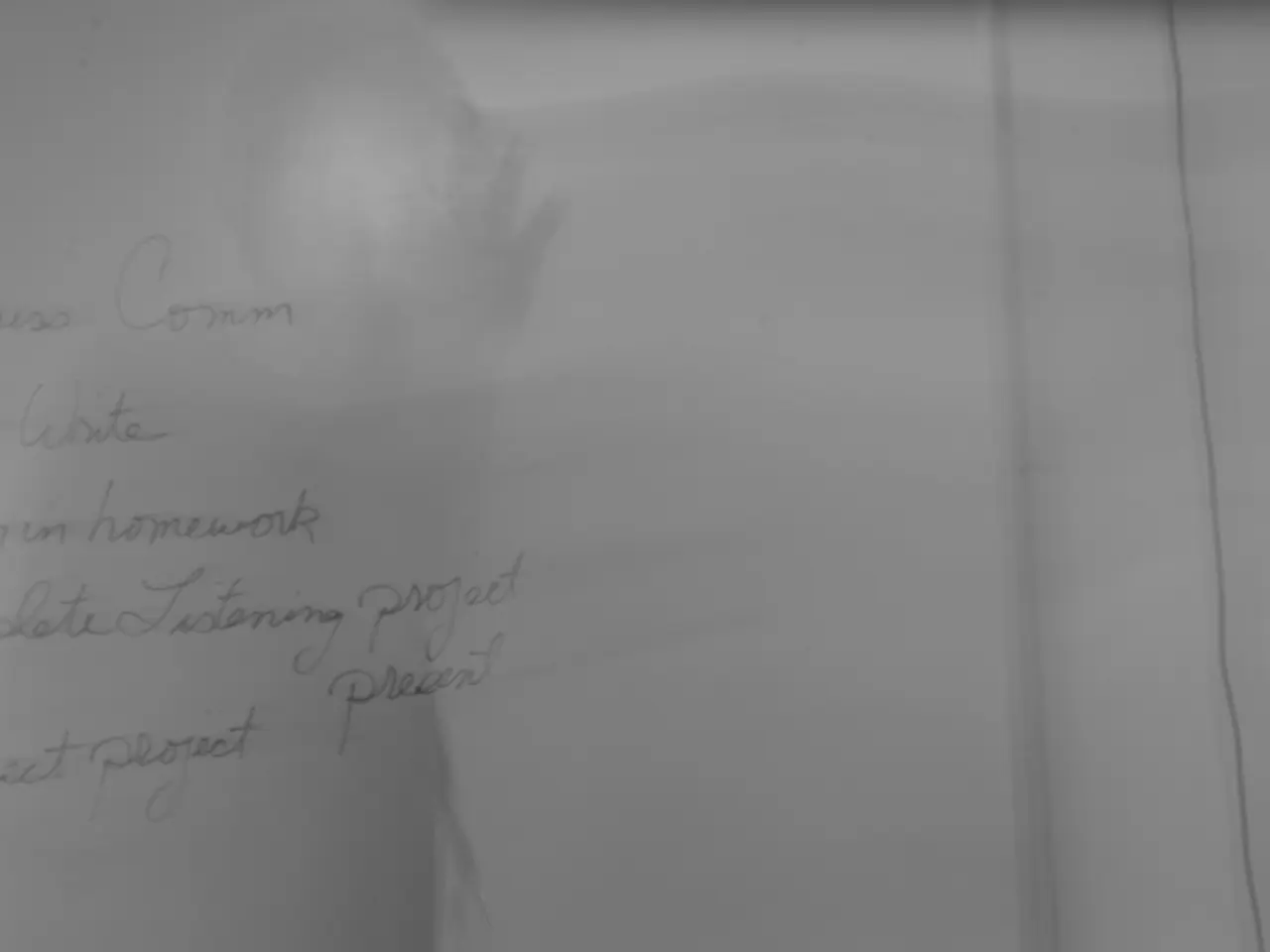Taking Aim: Israel's Showdown with Iran's Ayatollah Khamenei
Iran's Ayatollah Khamenei prioritizes his own objectives
The iron grip of Iran's Supreme Leader Ali Khamenei, already under pressure, tightens like a noose around his neck. Death threats from Israel areNot just a threat to his life, but a potential downfall of the Islamic Republic he commands. The recent series of Israeli attacks on Khamenei's advisors, military leaders, and nuclear scientists have created an intolerable situation for the Iranian ruler.
This week, Israeli Defense Minister Katz went a step further, labeling Khamenei as the "modern Hitler." He justified this remark by likening the Iranian leader to a dictator, making destruction of the State of Israel his ultimate goal. Katz reminded the world of Hitler, shouldering the blame for the horrific Nazi genocide. These remarks were in response to an attack by Iranian rockets that hit a hospital in southern Israel.
Rumor has it that U.S. President Donald Trump has blocked an Israeli plan to directly assassinate Khamenei. Days ago, the U.S. president declared, "We know exactly where the so-called 'Supreme Leader' is hiding." Trump even suggested that eliminating Khamenei would be 'easy' but left the decision for another time. Iran, on the other hand, is resolute. The Iranian people are prepared to resist both an imposed war and an imposed peace, according to a TV statement by Khamenei himself.
For decades, Khamenei has ruled Iran, taking over after the death of Ayatollah Khomeini in 1989. Despite sanctions, international pressure, and internal unrest, most recently in 2022 and 2023, Khamenei has remained the undisputed ruler of the country. The question of his successor has long been a topic of discussion within Iran, due to his advancing age. However, his latest moves hold critical importance for the Shiite Mullah system that has ruled Iran since the Islamic Revolution of 1979.
The recent threats on Khamenei's life and the Israeli attacks have accelerated the succession process. In an interview with the Boston University, Arash Azizi outlined the internal struggles for Khamenei's throne. "Even before the latest threats, many of the regime's daily orders were not given by Khamenei themselves, but by various groups competing for his succession," Azizi pointed out.
The potential of regime change hangs heavy in the air, with speculations about an internal coup or continued high-level assassinations intended to precipitate a shift in power towards Israel. However, it remains unclear whether Israeli Prime Minister Benjamin Netanyahu would authorize an operation as audacious as assassinating Khamenei. The precise location of the Iranian leader, a closely guarded secret of the highest security level, further complicates the situation.
In the midst of this chaos, it's obvious that Khamenei is caught in a self-inflicted dilemma. According to experts, his old age and dwindling physical and cognitive abilities make him ill-equipped to lead Iran into a high-tech war. A weak response inevitably weakens his authority, while a strong response could compromise his survival and that of the regime.
After years of building a confrontational persona towards the U.S. and Israel while avoiding direct encounters, Khamenei appears to have miscalculated the consequences of his actions. The Israeli attacks on Iranian military targets have significantly escalated tensions and have created widespread discontent among Iranians. "Many Iranians want the Islamic Republic gone," confessed Holly Dagres of the Washington Institute. "However, they don't want it at the cost of bloodshed and war."
Sources: ntv.de, gho/AFP/dpa
- Iranian Nuclear Program
- Iran
- Israel
- Wars and Conflicts
- USA
- Iran Conflict
- Iran-Israel Tensions
- Ayatollah Ali Khamenei
- Regime Change in Iran
- Nuclear Ambitions
- Israeli Military Strikes
- Global Energy Markets
- Oil Prices
- Israel-Iran Escalation
Enrichment Insights:
The current political tensions between Israel and Iran are pushing towards a direct confrontation, with Israel targeting Iran's nuclear program and military assets. This shift in tactics could have severe consequences for regional stability and global energy markets, as the rising risk of a broader conflict can lead to instability, blockage of the Strait of Hormuz, or direct attacks on Gulf Arab oil infrastructure, causing disruptions in oil flow and global economic growth.
The Israeli attacks on Iran are aimed at crippling the Islamic Republic's capabilities and challenging Khamenei's authority, ultimately trying to prevent Iran from reaching a nuclear weapons threshold. The Israeli military and intelligence services possess advanced capabilities in cyber warfare, surgical strikes, and intelligence gathering that will prove valuable in the ongoing conflict.
Given the intense political climate, it's crucial to analyze the potential outcomes of the escalating tensions between Israel and Iran. Possible scenarios include:
Global Oil Prices: Increased tension in the Gulf region could lead to supply disruptions of oil, ultimately causing a significant increase in global oil prices.
Regional Instability: The ongoing conflict could lead to instability throughout the Middle East, with implications for countries such as Iraq, Saudi Arabia, and Egypt.
Political Consequences: Changes in regional alliances or shifts in power may occur as smaller nations align themselves with one side or the other in an attempt to protect their own interests.
Global Economic Impact: A broader conflict could have far-reaching effects on the global economy, with potential recessions, currency fluctuations, and market volatility being possible outcomes.
It's crucial that world powers address the ongoing conflict between Israel and Iran to prevent a disastrous escalation of violence and potential catastrophic economic consequences.
- The ongoing political tensions between Israel and Iran, exacerbated by Israeli attacks on Iranian nuclear program and military assets, have prompted discussions on community policies regarding war-and-conflicts and general news, with the potential for global economic impact and regional instability.
- Amid escalating Israeli-Iranian tensions, the question of succession in Iran, following the dwindling health of Supreme Leader Ali Khamenei, is being increasingly debated in politics, given the possibility of regime change in Iran through internal coup or high-level assassinations.




